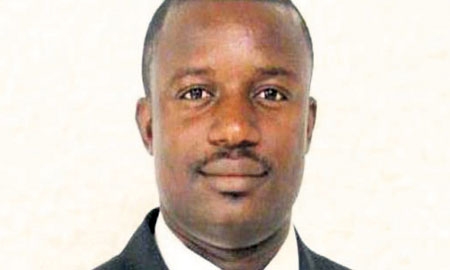Ghana’s oil only went online three years ago and the country is set to start producing its own gas in May. How do you assess the growth of Ghana’s oil and gas sector?
I think the oil discovery is a blessing for us. We are guided by experiences across the globe – from Norway, Trinidad and Tobago, Nigeria, Gabon, Equatorial Guinea – some of which have had very challenging experiences. Our ultimate aim is to ensure that the people of Ghana benefit from this oil revenue, and to maximise benefits that come from the oil sector, especially in terms of ensuring that we eradicate poverty and bring about an accountable system. That is what we have been working on. We have passed so much legislation.
We have the Petroleum Revenue Management Act, which strictly regulates how we use the oil revenue. It is separated into the Petroleum Holding Fund, and then we make an apportionment. At the end of every quarter, we must publish in the National Daily the revenues that have been accrued, how we are using them and account to Parliament as well. The Act also calls for the establishment of a public accountability committee, formed with chiefs and representatives from the media and legal sectors. Their duty is to ensure that we use those revenues judiciously and bring about accountability.
We do not want to get the ‘Dutch Disease’ so we are looking at an integrated industry, where we can produce fertiliser to serve the agriculture sector and tie in to the aluminium and bauxite sectors, as well as the salt industry, so that there is an independent segmentation of the economy.
What role does natural gas play right now, and how involved is the private sector?
“The oil discovery is good for us, but we are aware that we must make
judicious and prudent use of the oil resources, and more importantly,
build local capacity”
John Abdulai Jinapor, Deputy
Minister of Energy |
We currently spend over $1 billion on crude oil to fire our thermal plants, but now we can make savings of 60 to 70 per cent if we use gas, which is cleaner, more environmentally friendly, and thermal plants last longer when you use gas. We also spend a lot on wood fuel and cutting down trees. So if we can push more gas into the system in the form of LNG and push people away from cutting down trees, we will be making a huge impact environmentally. So for us, gas is an essential component that we must work on.
As for installed electricity capacity, we have a shortfall of 200MW. We want to reach 5,000 MW by 2016, which is very ambitious but I believe we can achieve it. We are encouraging independent power producers (IPPs) to come into the system. We have come to realise that government alone cannot be the sole provider of energy.
How is your ministry working to empower local content in the oil and gas sector?
It is a new industry, but we are ensuring that we are building capacity, because that is what matters the most. If Ghanaians do not have the capacity to meet the standards, it does not work. So we must focus on and pay attention to building capacity, training people and giving them the knowledge that will put them in a better position to contribute.
Also, we’re partnering with some of our local institutions, like universities and polytechnics. We have formed partnerships with most of the international oil companies where students are sent for internships alongside their studies.

0 COMMENTS